March 27th, 2016 by Rachel | Tags: Peace Corps, South Africa, Travel | No Comments »
Last January, I took a break from living in Cameroon to explore another part of Africa and see my family. I met my family who traveled from the US in South Africa. I traveled to Kruger National Park and Cape Town and took a road trip on Garden Route to Knysna.
It was a trip that made me realize how different Cameroon is from any other places in the world and how challenging my life has been in Cameroon. When I first got off the plane in Johannesburg, I immediately marveled at the modernization that exists in the country. I saw an escalator for the first time in nine months and also a parking garage. When I mentioned my seeing an escalator for the first time in so long to my brother, he showed me an episode of Trevor Noah talking about hundreds Zambians repeatedly riding the escalator that was built for the first time in Zambia recently. I was also in awe of the well-paved and smooth roads and highways found in the country and also well-built and clean buildings. I was astonished to learn that I could drink water from tap int he major cities without worrying about getting sick. I was ecstatic to find blueberry muffins in the hotel as blueberries are not found anywhere in Cameroon. In fact, not any kind of berries can be found in Cameroon including strawberries although jams imported from abroad could be found in Cameroon. I sure did enjoy some bites of strawberries too. I marveled at the mall I went to in Cape Town and the number of shopping options in a small space. I sighted McDonald’s for the first time since I was last in the US.
Everywhere I went in South Africa, I was reminded of the little things that I have taken for granted growing up outside of Cameroon. Even though South Africa is still a unique country with its own cultures and beautiful landscapes, it reminded me of home. It also made me realize how much work I have to do in Cameroon to help improve the development of the country. I do want to note that I only saw a small part of the country, and South Africa does have areas that are still developing and its own set of problems, which is why there is Peace Corps presence in the country too.
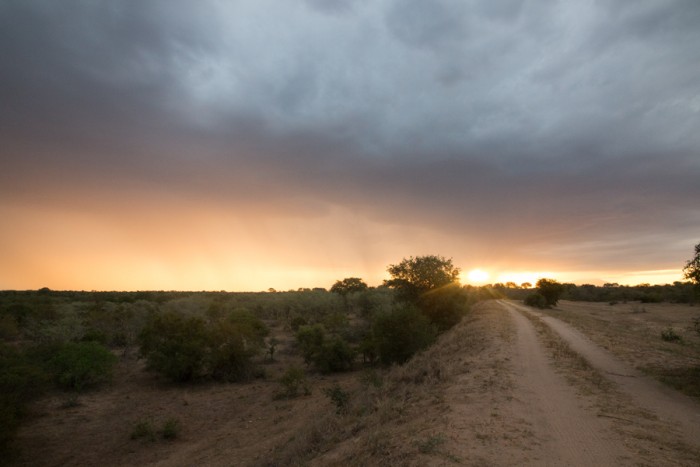
Sunset at Kruger National Park
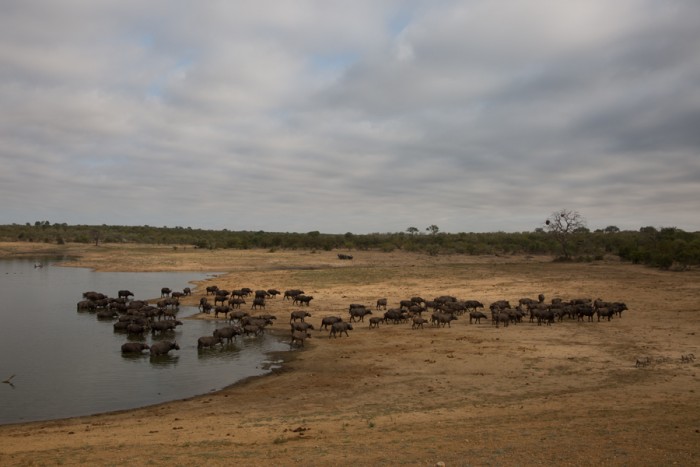
Water buffalos at Kruger National Park
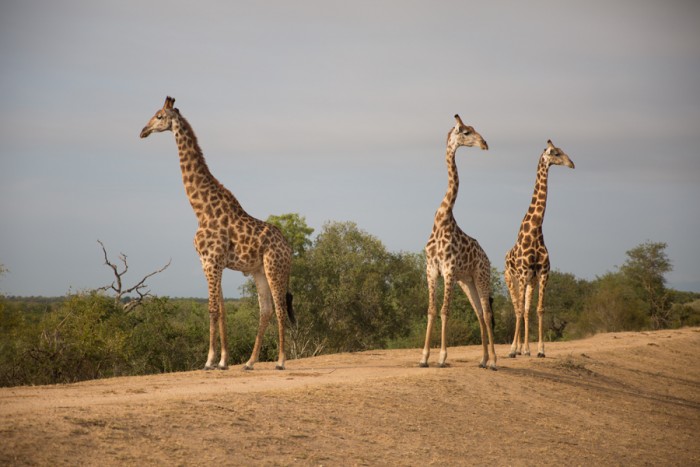
Giraffes sighted at Kruger National Park

Victoria and Alfred Waterfront in Cape Town in the evening
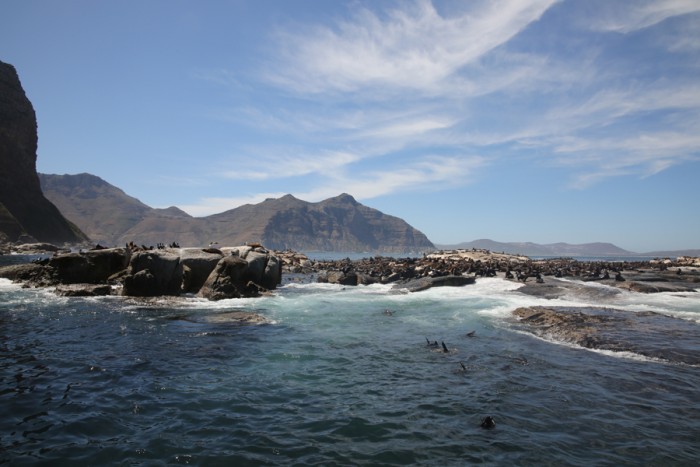
Seal colony in Cape Town
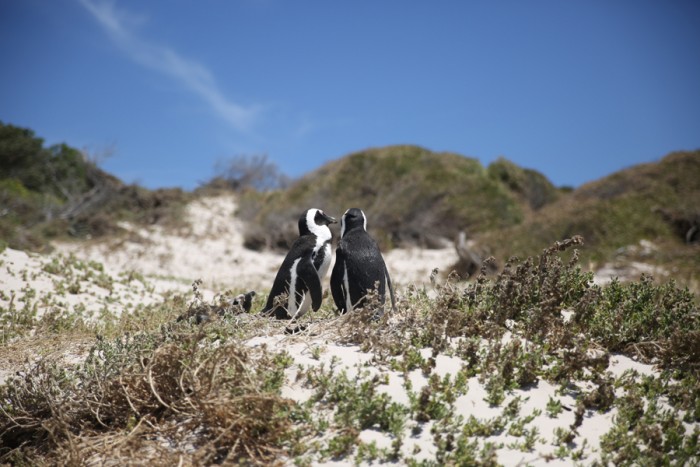
Penguins spotted at Boulder Beach
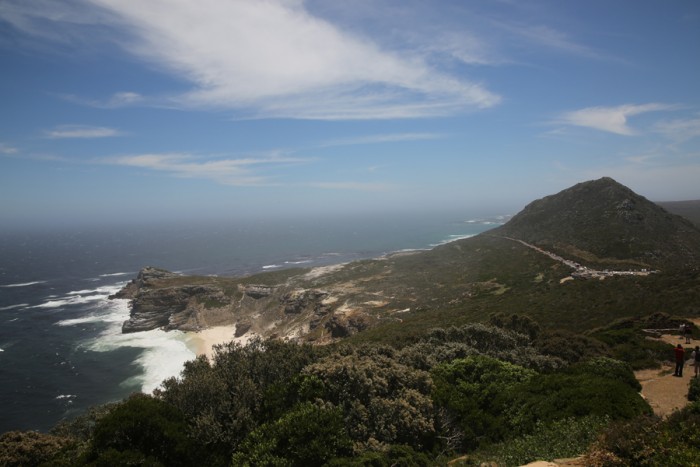
Cape Point, a sight on Chapman’s Peak road

Kirstenbosch Garden in Cape Town
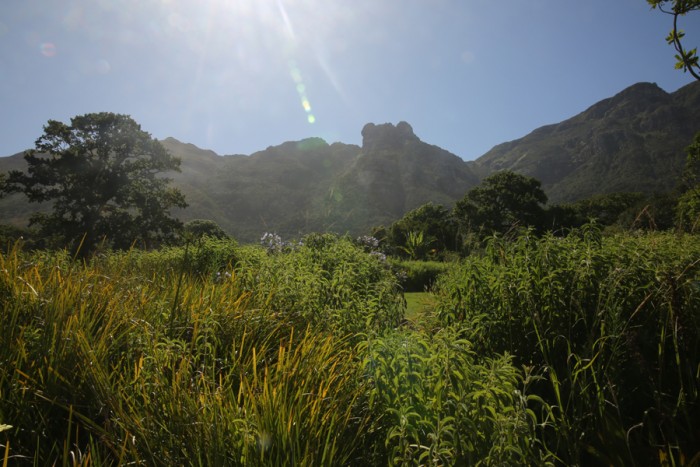
Kirstenbosch Garden in Cape Town
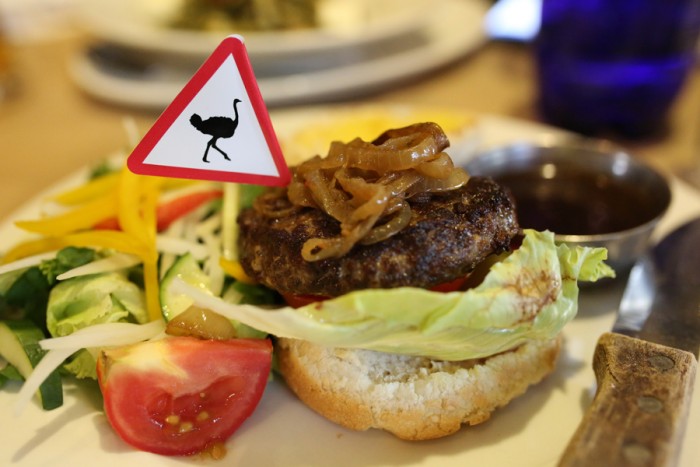
Ostrich burger, a dish that is unique to South Africa
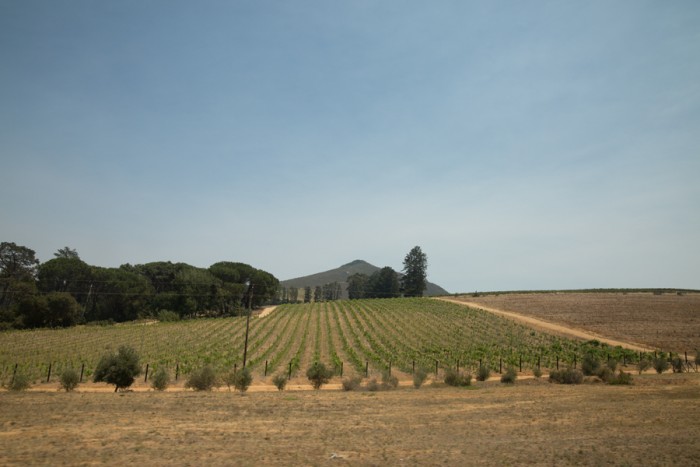
South Africa is known for its vineyards and wines

Ferris wheel at Victoria and Alfred Waterfront in Cape Town
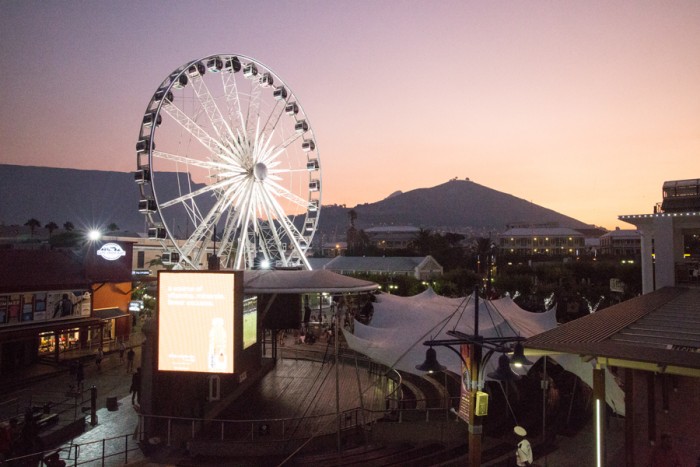
Sunset at Victoria and Alfred Waterfront

A view of Table Mountain from the boat heading to Robben Island
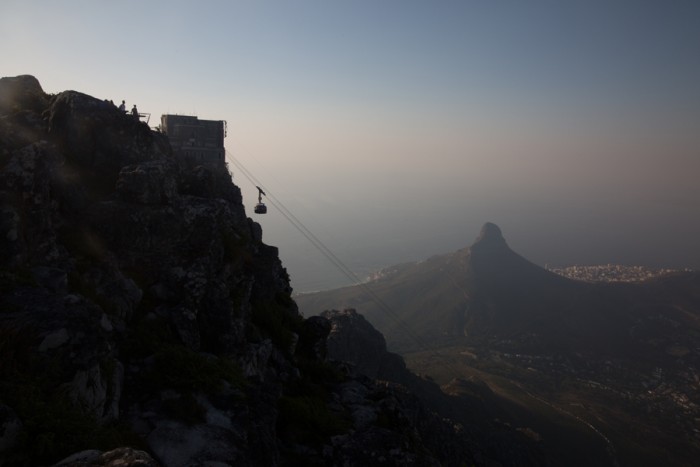
Table Mountain at sunset
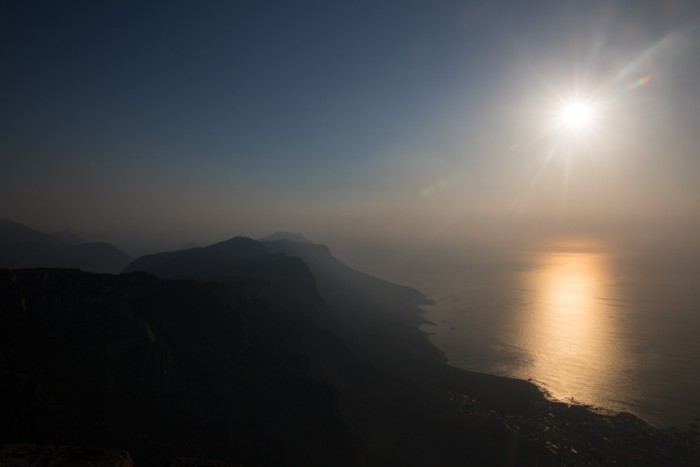
A view of sunset from Table Mountain
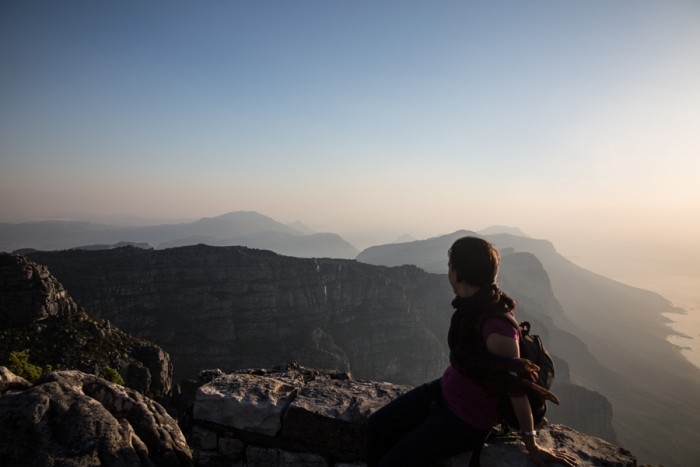
Me at Table Mountain
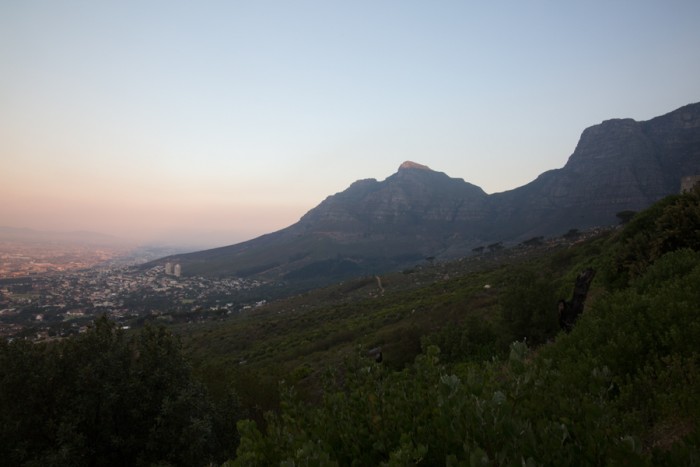
Cape Town at sunset
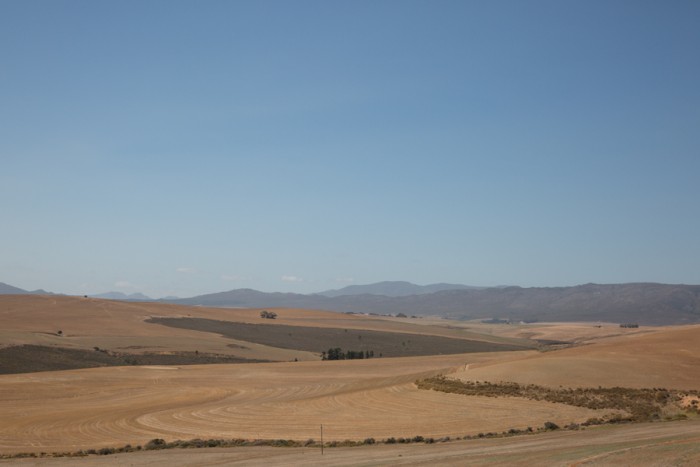
Garden Route
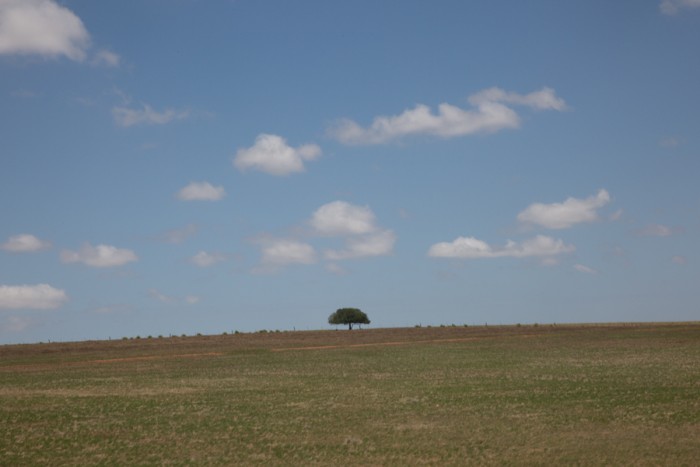
Garden Route

Knysna, a town on the Garden Route
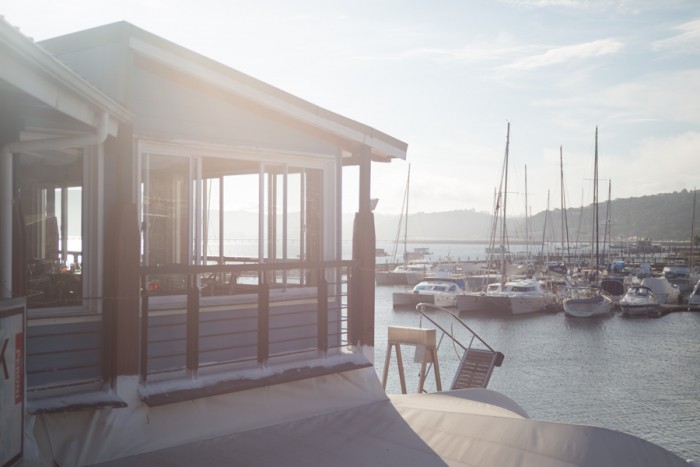
Knysna in the evening
March 22nd, 2016 by Rachel | Tags: Disability, Peace Corps, Photo Essay | No Comments »
One year ago, I wrote a post on how persons with disabilities are denied access to water. In honor of World Water Day, I would like to share some exciting updates on how one gentleman is making water more accessible for persons with disabilities who have no indoor plumbing in their homes.
Before I share updates, I would like to briefly recap what happened one year ago. When Hilda Bih invited Farmer Tantoh one year ago to be interviewed on the radio to talk about how can we make water more accessible for persons with disabilities who have no indoor plumbing in their homes, Farmer Tantoh had no prior experiences in working with persons with disabilities. He was however very experienced in building water catchments to provide improved access to clean water for the general communities. While building water catchments would provide better access to clean water, it is not necessarily always accessible to persons with disabilities. To get clean water from a water catchment, it sometimes requires long walks on steep hills. When Hilda asked him how he can make water more accessible for persons with disabilities, he was at a loss on what would be the best solution because he had never worked with persons with disabilities.
The following day, Farmer Tantoh took me and Hilda to one of his water project sites in Bafut where he built a water catchment. Hilda could not get to the water faucet at all with her wheelchair. The water catchment was located at the bottom of a steep hill. A few days later, Farmer Tantoh took me to another water site in Nkwen where he is also building a water cachement. We had to climb up on very steep, uneven and slippery hills to get to the water source. I told Farmer Tantoh that no persons with mobility and/or visual disability can get water in this kind of environment. I told him that the site is still even dangerous for persons without disabilities because they could fall and break their bones and become disabled if they have no access to healthcare due to financial reasons.
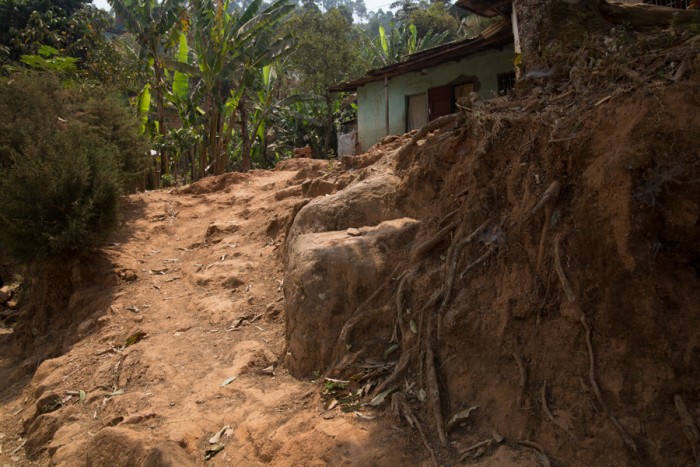
This is a steep and slippery hill that people have to climb to get water in Kwen.
Between Hilda asking Farmer Tantoh on the radio on how can we make water more accessible to persons with disabilities and seeing how Hilda could not get to the water source in Bafut and my commenting to him on how it’s not possible for persons with disabilities access water in Nkwen, he went on a mission to make water more accessible to persons with disabilities. He recently gave me some very exciting reports. He is building a water faucet at the top of the hill in Bafut so no one has to walk downhill. He is building a water faucet at the bottom of the hill in Nkwen so that no one has to climb up the steep and slippery hill. I visited the water site recently, and I saw that he is making great progress in reconstructing the water site.
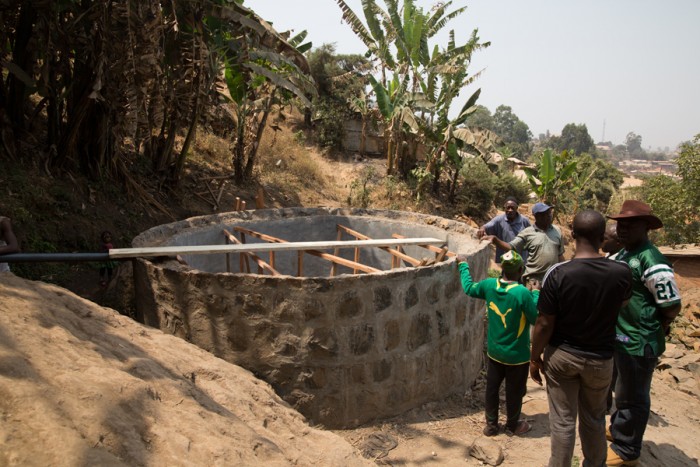
This is the water cachement that Farmer Tantoh and the people in the community are building in Nkwen along with a new water faucet at the bottom of the hill.
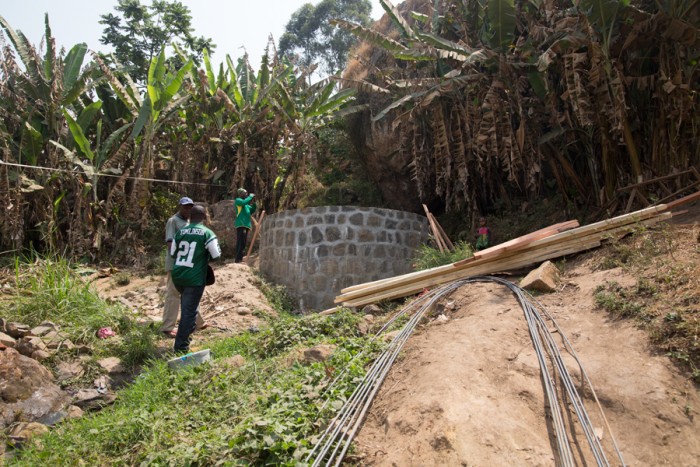
He also went to Yaounde to speak on the national radio about his work in making water more accessible for persons with disabilities and gave his phone number. Since the radio show, he has been contacted by visually impaired people to make water more accessible.
For the past few months, he along with a good friend of his who works with children with disabilities, Felix, have been visiting homes of visually impaired students and delivering them water as they have no indoor plumbing. While this system is not sustainable as it requires people to go to a public tap and pour water into jugs and then deliver jugs to the homes, Farmer Tantoh has really shown a tremendous passion and commitment to making a difference for persons with disabilities by committing to delivering water every weekend to a vulnerable population.
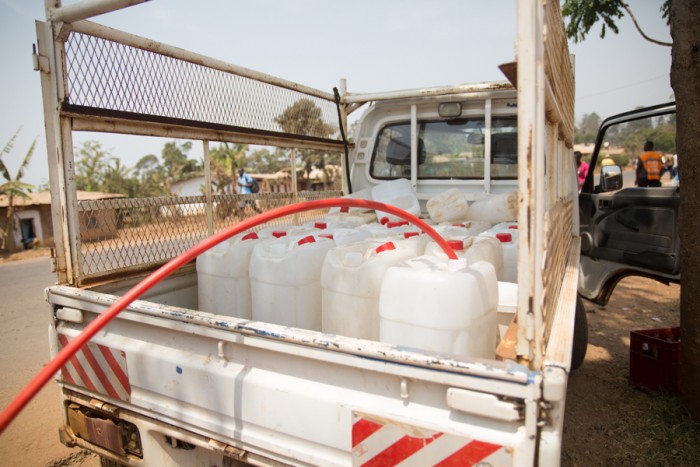
Farmer Tantoh and Felix get water from a public tap.
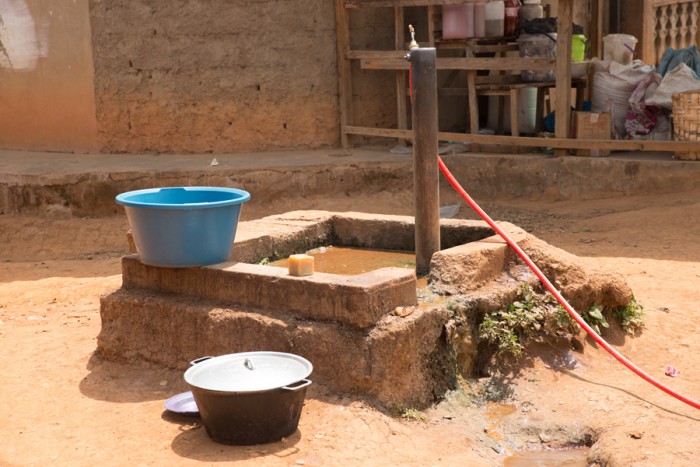
This is the public tap where they get water.
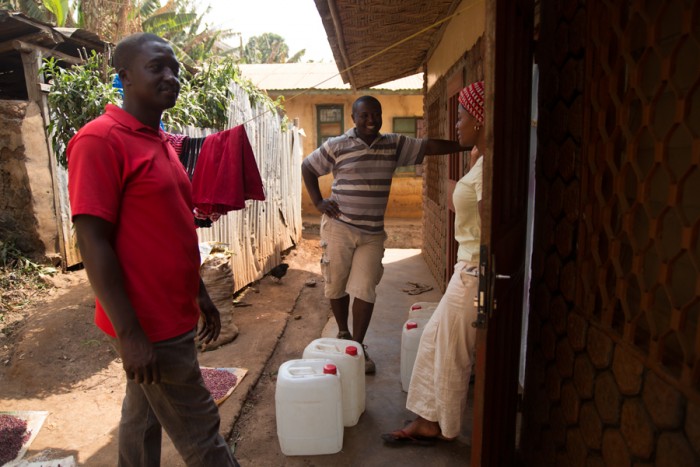
Farmer Tantoh and Felix deliver water to visually impaired students.
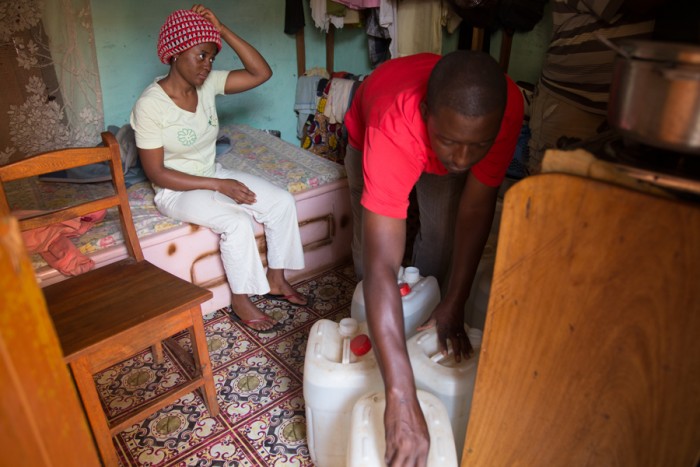

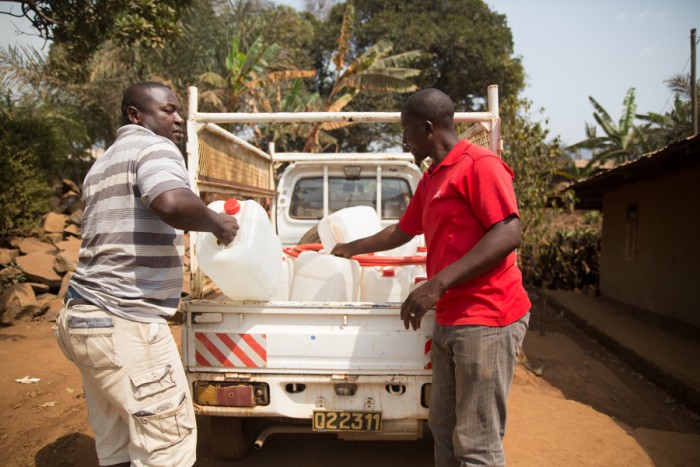
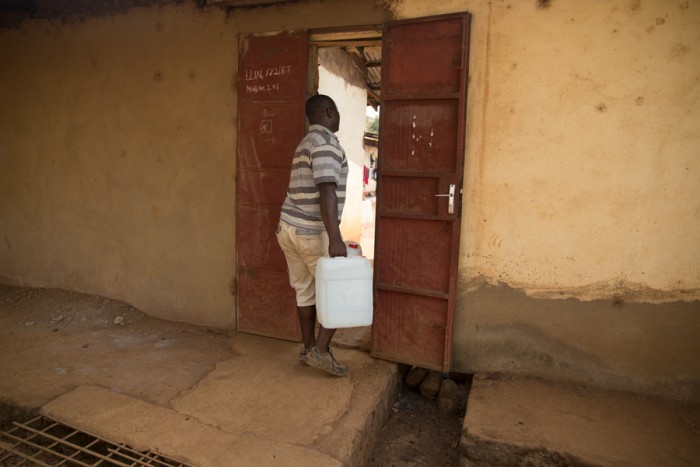
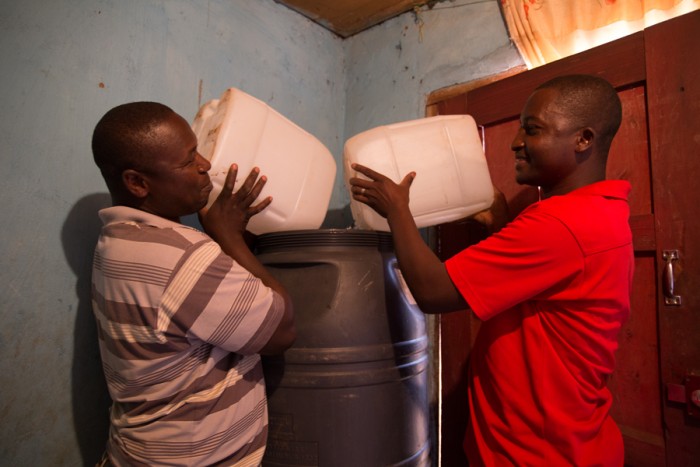
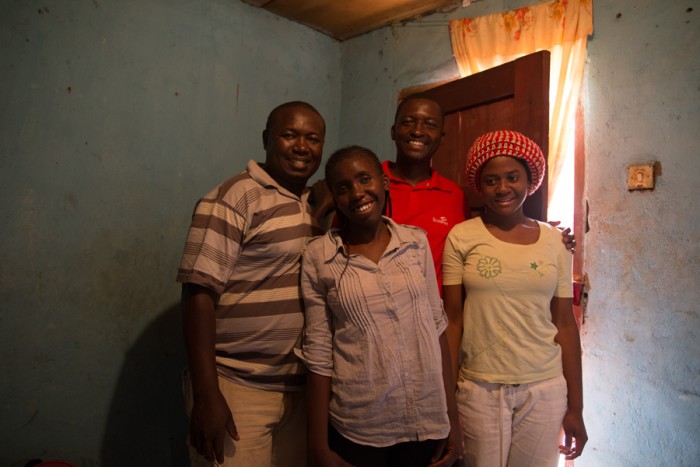
Farmer Tantoh, Felix and two visually impaired students.
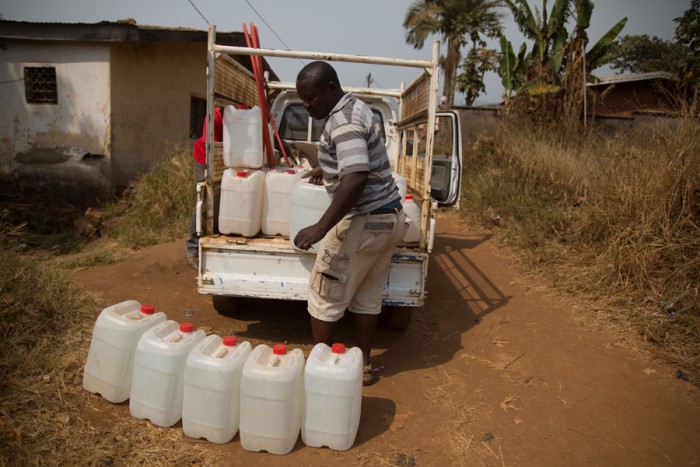
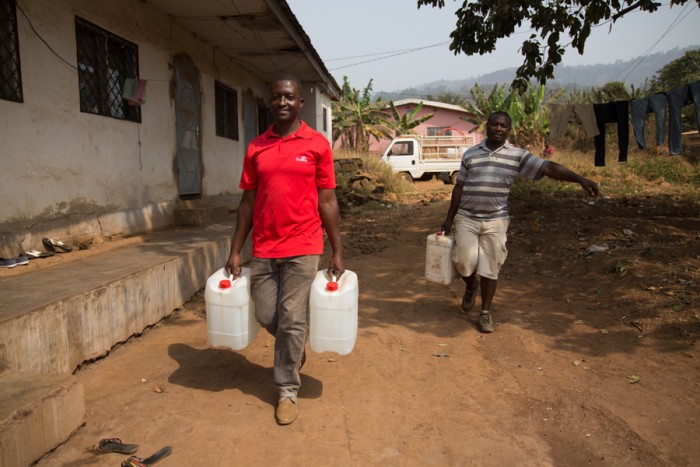
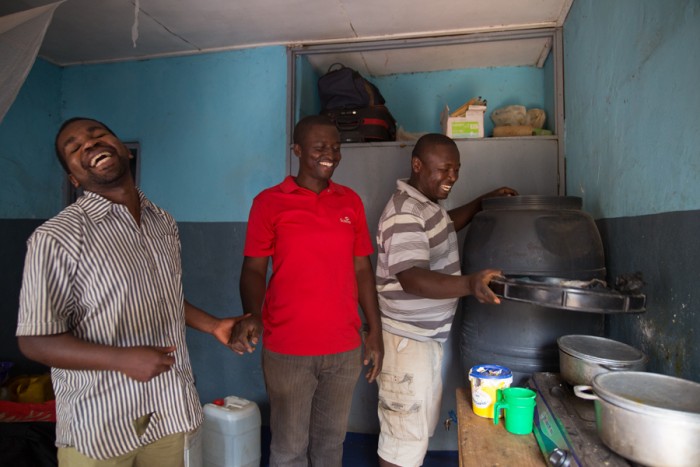
While educating him about making water more accessible for persons with disabilities did spark an incredible and unprecedented change, I give Farmer Tantoh a tremendous amount of credit for taking the courage to make sure the most vulnerable population has access to one of the most important resources that is considered a fundamental right for human beings.
March 19th, 2016 by Rachel | Tags: Peace Corps | 1 Comment »
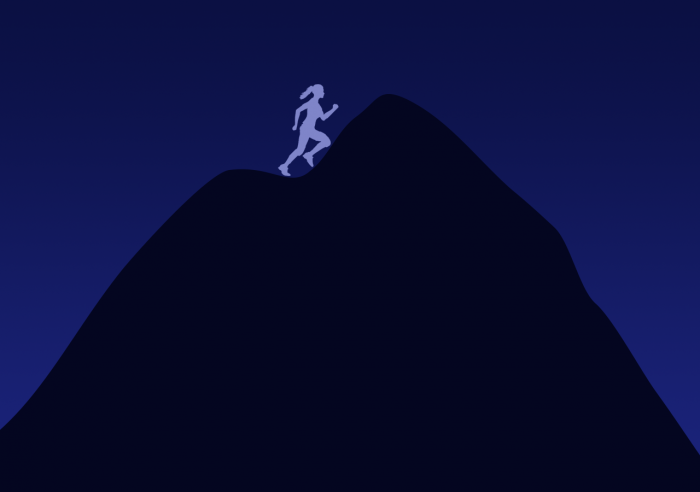
“There is no telling how many miles you will have to run while chasing a dream.” – Author unknown
I’m at the stage where I’m three-fourths way through a very long marathon. I have been running for a very longtime. I have been counting down how many miles I have left to go for some time now. I’m sweating profusely and exhausted to the point that I am ready to stop running but I don’t want to quit because I am so close to the finish line. I’ve worked so hard to prepare for the long journey, and I’ve been doing so well so far in spite of some mishaps and illnesses.
This is how I am feeling right at this point in my service. I am tired and ready to go back to the States. I’m so close to finishing the service. I have only seven more months to go, but I’m not ready to quit.
Strangers approaching me on streets, asking for my phone number or to be my friend, and my standing out in the crowd is wearing me out. On the other hand, hearing from community members that they have no knowledge of HIV/AIDS or misconceptions about how the disease is transmitted is motivating me to stay in country and continue to provide education to as many people who have been denied to education as possible I think of every member of my community as my babies, and I can’t just walk away from them without finishing the work. So many of these people whom I educate have been denied to important health information. I need to get the information to them. I have so many exciting projects coming up that I want to see through the completion. For the rest of the service, I am focusing on finishing up on giving HIV Prevention workshops to as many persons with disabilities and then providing them Sexual Reproductive Health workshops. I will also be training healthcare workers on how to include persons with disabilities in HIV services.
As I continue my work, I am counting down the months until I am on the plane to the States. I have seven more months to go. It seems like a longtime, but it will go by quickly. I look forward to the day when I will be a blur in the crowd and no longer stand out. I also look forward to no longer being away from my love for a long period of time. I know that the moment I am on the plane flying back to the States and looking back on the most incredible two years journey of hard work will be the most gratifying feeling.
March 9th, 2016 by Rachel | Tags: Disability, HIV/AIDS, Peace Corps | No Comments »
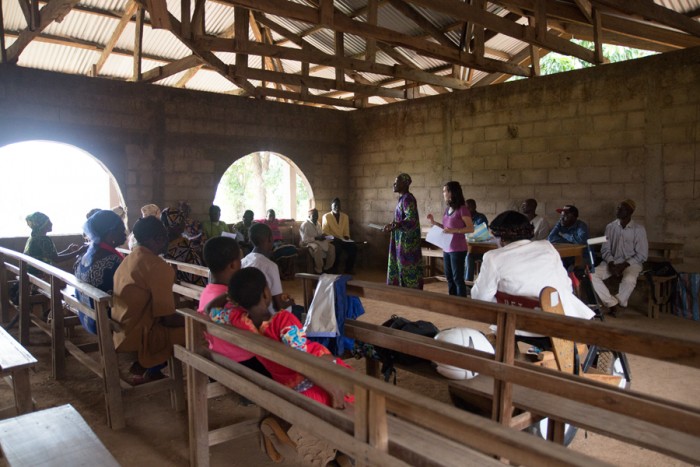
Rachel and Samuel present HIV Prevention to a large group of persons with disabilities in Kedjom Keku.
In the past couple weeks, I gave three additional HIV Prevention workshops to persons with disabilities. I traveled to an area called “Bamenda I.” While this area is still part of the city of Bamenda, it’s located far from the center of the city and is on the outskirts. I presented to a large group of persons with disabilities. At this workshop, it was clear that almost all paricipants have been well educated in HIV Prevention because everyone except for one person scored 78 percent or higher on the pre-test. A couple people did say that sharing clothes and/or hugging people can cause HIV transmission on the pre-test. However, on the post-test, every single participants marked “false” that HIV can be transmitted through sharing clothes and hugging. This demonstrated this myth has been well clarified at the workshop. One participant scored 44% on the pre-test and then scored 89% on the post-test which shows that the participant has demonstrated a tremendous improvement in the knowledge of HIV prevention.
Then, a few days later, I presented to the visually impaired group in Bamenda. This was a group of nothing but very high intelligent and well educated persons with disabilities. According to one member of the group, most members are or were university students which explains why they already demonstrated good understanding of HIV prevention. Everyone scored 89% or 100% except for two who scored 78% on both the pre-test and post-test. Almost no one believed in the myths of HIV being transmitted through sharing clothes and hugging people. Even when I asked what what HIV and AIDS stood for and what were the causes of HIV, participants were able to verbally answer the questions correctly. This group represented a good example of how education can make a difference in one’s knowledge about health.
This past Sunday, Samuel and I traveled to Kedjom Keku, a village in Northwest that was located about an hour outside of Bamenda. We presented to another large group of persons with disabilties. Half of the participants reported having never learned HIV in the past when I verbally asked them if they have learned about HIV in the past. On the pre-test, four participants scored 100 percent and the rest scored 89 or 78 percent. It’s important to note that many of those who scored 78 percent circled “true” for every single answers, which is to say that the participants probably knew nothing. Several participants reported both on the pre-test and verbally that HIV can be transmitted through sharing clothes and hugging. On the post-tests, every single participants except for four scored 100%. Those four scored 89 percent. Only one reported on the post-test that HIV can be transmitted through hugging. This means that at this workshop, I was able to really clarify the myths.
As a matter of fact, because this was Samuel’s only second time being present with me at an HIV Prevention workshop, he was completely shocked to learn how many persons with disabilities believed that HIV can be transmitted through sharing clothes and hugging, and said, “Did they really believe in this?” He said he couldn’t understand and thought they should have already understood that HIV can be transmitted only through sexual intercourse, sharing needles, blood transfusion, breastfeeding, or pregnancy labor. The first time he was present with me was at the visually impaired group, a group who already understood so well about HIV/AIDS simply because they had education. However, majority of the participants in Kedjom Keku likely have never been to school, which is likely the reason why they lacked the knowledge in how HIV is transmitted.

Samuel was surprised to learn how many persons with disabilities believed in certain myths relating to HIV transmission.
March 9th, 2016 by Rachel | Tags: Peace Corps | No Comments »
I was so happy to say goodbye to dust season last week, March 1st, when the rain finally poured for the first time since November. This was probably the happiest time I have ever been about seeing rain!
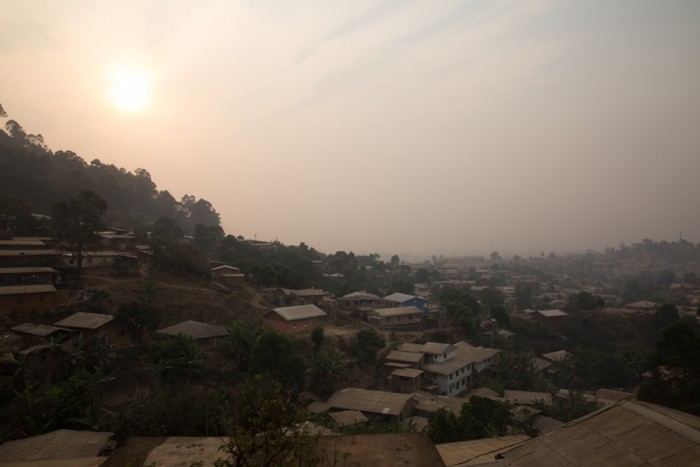
Bamenda during dust season.
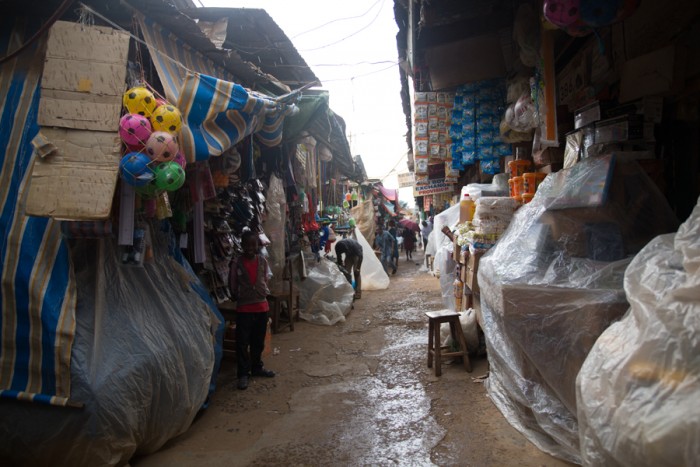
First day of rain of 2016!
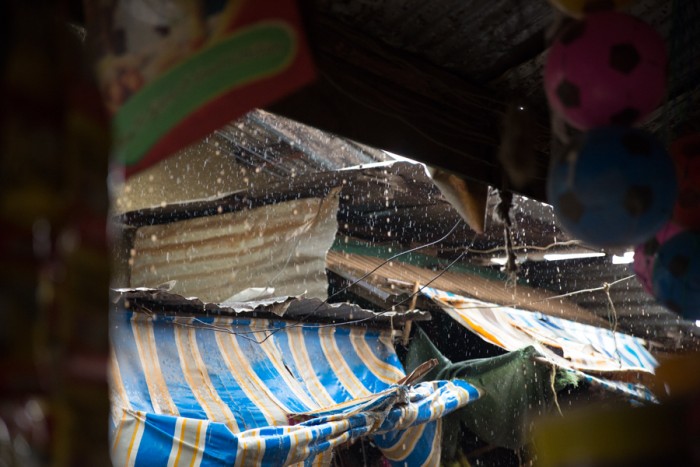
Rain came down really hard on the first day of rainy season.
For a few weeks prior to the first day of rain of the rainy season, I have been really longing and waiting for rain. There were too many moments to count where I said to various people, “I WANT rain to come now!” My hair was becoming dirtier than ever just from the dust in the air. The minute I go outside right after washing my hair, my hair would go from feeling very smooth to very coarse. My clothes turned brown very quickly during the day. There were moments when I questioned if the brown coloring on my feet were dust or tan.
While Bamenda has been cool for the most of dry season, in the past couple weeks, it was becoming hotter to the point that I was sweating in middle of the day. Dust was also making the view of Bamenda less beautiful. Mountains in the backdrop disappeared because the sky contained such a thick layer of dust.
Right after the rain came, the air instantly felt cooler and fresher. The smell of the air became remarkably different. It smelled noticeably fresher.
Since then, rain has been coming almost everyday, pouring down so hard to the point that my apartment was flooded one day. Not to worry, my apartment has since been cleaned up. In spite of the catastrophe, I would still choose rainy season over dry season in any day. My hair and clothes are cleaner. The air is much fresher. The weather is much cooler. When there is sun, I can see the beautiful mountains in the backdrop.
Goodbye dust season! I will not miss you!
